Plant food
shelleyh
11 years ago
Related Stories
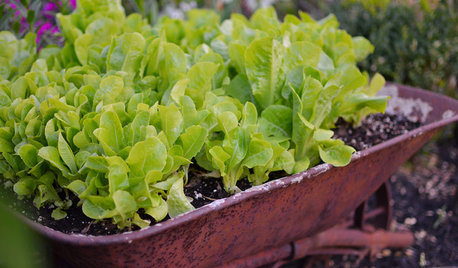
GARDENING GUIDESYes, You Can Grow Food in a Shady Yard
Your shady garden doesn’t have to be forever barren. Berries, herbs and other shade-loving plants can produce a delicious bounty
Full Story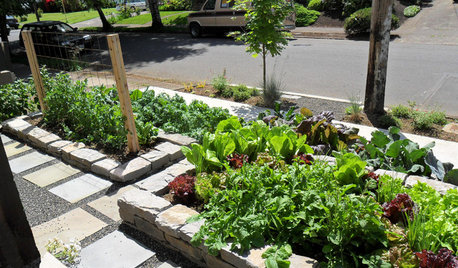
FRONT YARD IDEASWelcome Edibles Into the Front Yard for Fresh Food and More
Give your front yard design a boost and maybe even make new friends by growing fruits and vegetables
Full Story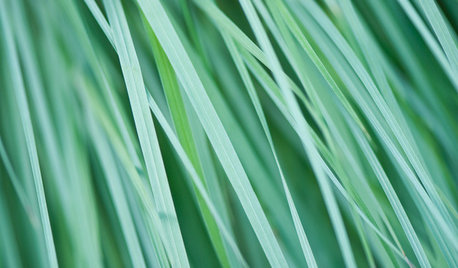
GARDENING GUIDESGreat Design Plant: Little Bluestem Goes Above and Beyond
It thrives in poor soil and provides food and shelter for wildlife. Plus, Schizachyrium scoparium is just a darn pretty native grass
Full Story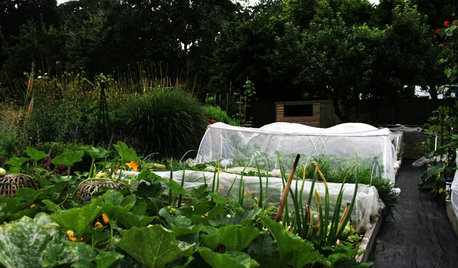
EDIBLE GARDENSFood and Community Thrive in a U.K. Allotment Garden
Get a peek at a rented garden plot in England where edibles and flowers mix and local residents can mingle
Full Story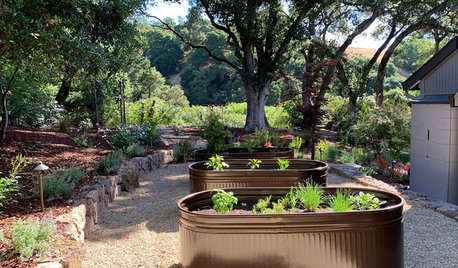
FARM YOUR YARD6 Things to Know Before You Start Growing Your Own Food
It takes time and practice, but growing edibles in the suburbs or city is possible with smart prep and patience
Full Story
FARM YOUR YARDHello, Honey: Beekeeping Anywhere for Fun, Food and Good Deeds
We need pollinators, and they increasingly need us too. Here, why and how to be a bee friend
Full Story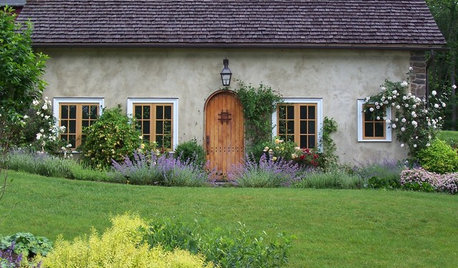
SMALL SPACESCottages: The Comfort Food of Architecture
Soul satisfying and as snug as a favorite sweater, a cottage knows how to roll out the welcome mat
Full Story
KITCHEN DESIGNPhoto Styling the Kitchen with Food
Want to show off your kitchen? Add some instant culinary color
Full Story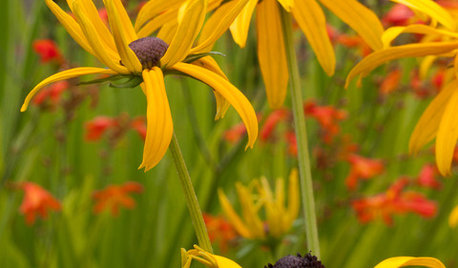
LIFEYou Said It: ‘Art Is a Lot Like Food’ and Other Houzz Quotables
Comments, advice, popular photos, lessons and spectacular views from this week
Full Story






ken_adrian Adrian MI cold Z5
aachenelf z5 Mpls
Related Professionals
Birmingham Landscape Architects & Landscape Designers · Ferndale Landscape Architects & Landscape Designers · Hyattsville Landscape Architects & Landscape Designers · Sand Springs Landscape Architects & Landscape Designers · Concord Landscape Contractors · Bridgeview Landscape Contractors · Gaithersburg Landscape Contractors · Golden Landscape Contractors · Gresham Landscape Contractors · Harvey Landscape Contractors · Laguna Hills Landscape Contractors · North Canton Landscape Contractors · Pine Hills Landscape Contractors · Spring Landscape Contractors · Wheat Ridge Landscape Contractorscalistoga_al ca 15 usda 9
mistascott
aachenelf z5 Mpls
mistascott
NHBabs z4b-5a NH
shelleyhOriginal Author
ken_adrian Adrian MI cold Z5
mistascott
gailwrite
mistascott
flowergirl70ks
spedigrees z4VT
mistascott
ninamarie
gardengal48 (PNW Z8/9)
mistascott